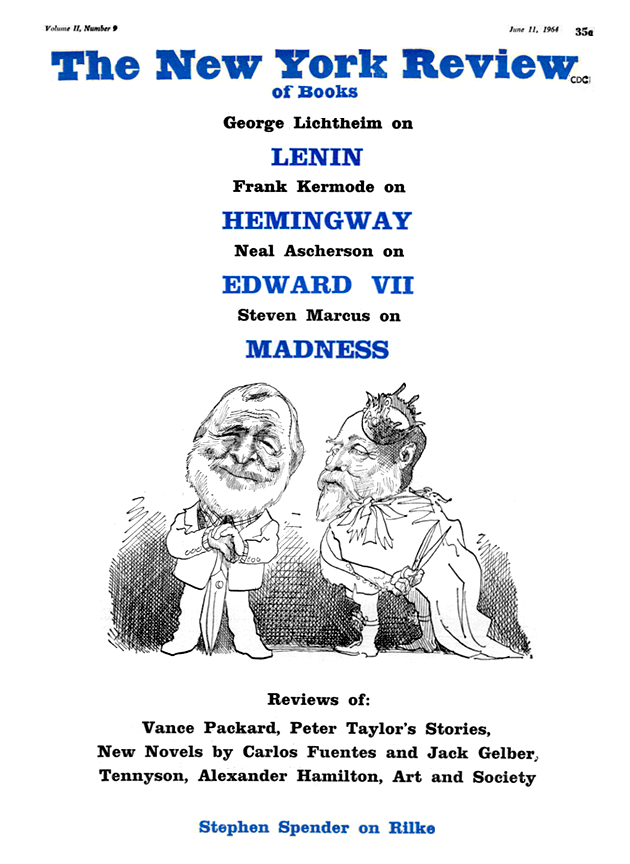In response to:
Kennan's Realism from the May 14, 1964 issue
To the Editors:
George Lichtheim’s review of Kennan’s On Dealing with the Communist World is marred by his uncritical acceptance of Mr. Kennan’s analysis of the American political scene. Mr. Kennan argues against positions which were indeed widely held ten years ago in the United States but to which no responsible official subscribes today.
Thus Mr. Kennan argues against “a policy which sees no issue to the present contest except in the final and complete destruction of one side or the other.” Adds Mr. Lichtheim: “It is instructive to be told on Mr. Kennan’s authority that such people exist not only in Peking but also in Washington; the present reviewer has tended to discount their influence; plainly it is greater than one had supposed.” Mr. Lichtheim can safely continue to discount their influence because it is non-existent.
Referring to Mr. Kennan’s book, Mr. Lichtheim makes a number of points about the Soviet Union, the satellites and their mutual relations and adds that “these points would not in recent years have been worth making in front of a European audience…The fact that Mr. Kennan had to devote the greater part of the 1963 Elihu Root Lectures to expounding such verities is cause for worry. It ought by now to be possible to argue about coexistence without having to rehearse the commonplaces of enlightened discourse.” The truth is that such verities don’t need to be expounded to an American audience either, except to an uninfluential minority, such as exists in all countries, which is not susceptible to rational argument. To address myself only to one specific point: Mr. Lichtheim concludes from reading Mr. Kennan’s book that the adherents of “liberation” by force are “apparently more numerous and influential than one had thought.” Perhaps I have been talking to the wrong people; but I don’t know of a single member of the Department of State, the Department of Defense, or the Central Intelligence Agency who holds to such views.
In truth, Mr. Kennan, frustrated by his experience as ambassador in Belgrade, argues against the slogans of the Dulles era as though they were the realities of today. As a matter of fact, these slogans hardly influenced American foreign policy even when Mr. Dulles was in power. And Mr. Lichtheim was better informed about official American opinion before he read Mr. Kennan’s book than he is now.
Hans J. Morgenthau
Center of the Study of
American Foreign and Military Policy
University of Chicago
This Issue
June 11, 1964


